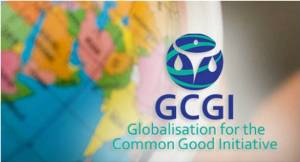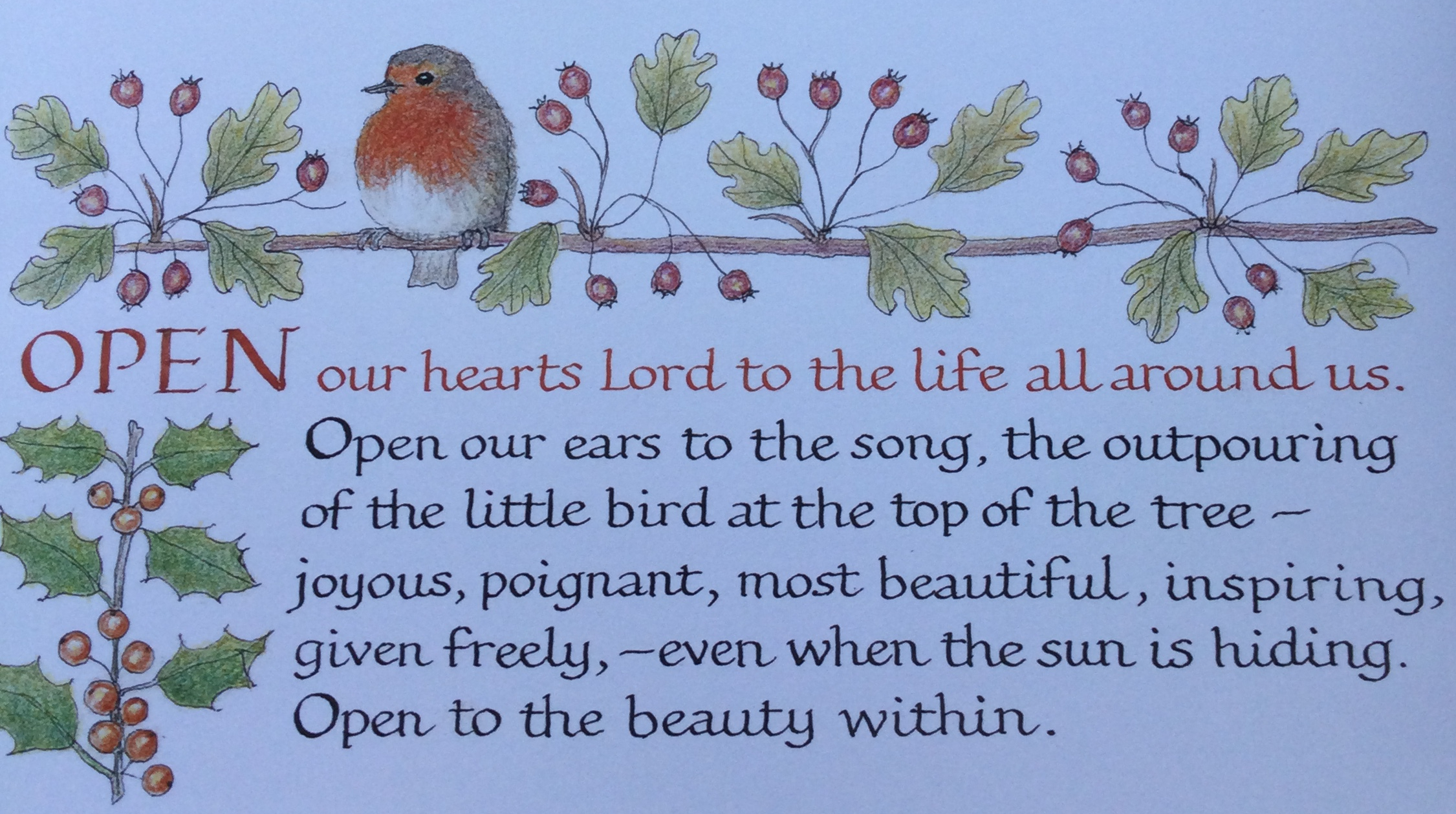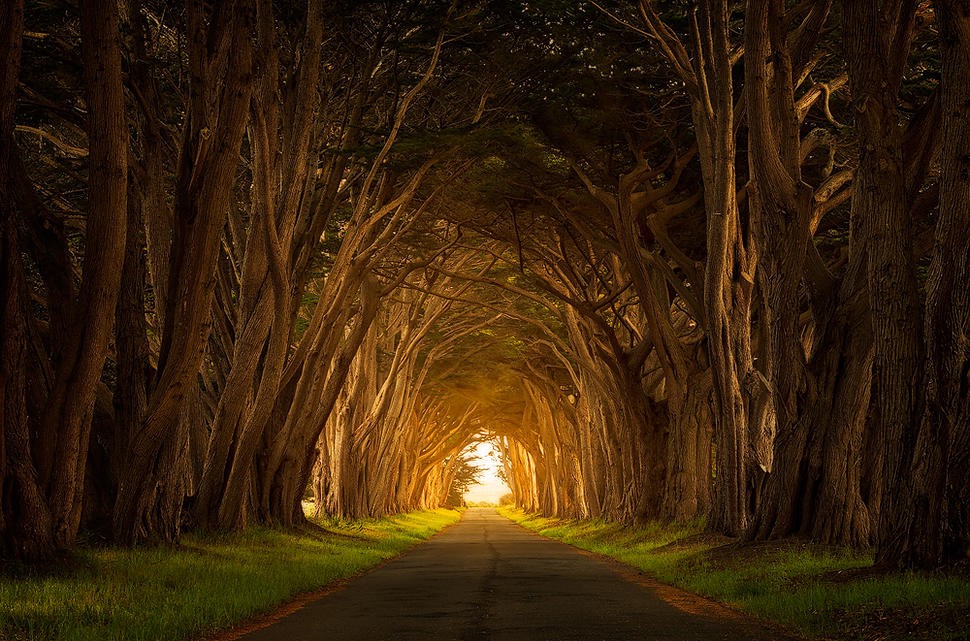- Details
- Written by: Kamran Mofid
- Hits: 905
First published on 9 April 2025

Photo credit via The Economist
British prime minister, Sir Keir Starmer declares ‘the end of globalisation and admits it has failed the public’- The Independent, 6 April 2025
"Globalisation as we've known it for the last couple of decades has come to an end," British Treasury minister, Darren Jones, remarked in a BBC interview on 6 April 2025
Here, we must also recall the prophetic words of Thomas Piketty, the distinguished French economist who around nine years ago drew the world’s attention by saying to us: ‘We must rethink globalization, or Trumpism will prevail.’ At the time of Trump’s first election win in 2016 Piketty noted that ‘Rising inequality is largely to blame for this electoral upset. Continuing with business as usual is not an option.’
Similarly, we must remember the wise and timeless world of the great 19th-century designer William Morris : “Have nothing in your house that you do not know to be useful, or believe to be beautiful.”
And now, we are paying a heavy and painful price for failing to heed their calls. Our homes and our lives are full of cheap, useless and irrelevant junks, bought mainly on credit, whilst we all have become poorer and unequal than ever before.
‘Economic inequality breeds resentment and a desire to get even. That’s what fuels support for even incompetent regimes.’
At this moment in time, the Biggest Question of them all must be: Then, What next?
“World is being brought to its knees by one economy, outside which live 96% of the population, who produce 84% of the world’s manufactured goods”.-Gordon Brown, former British prime minister, The Guardian 10 April 2025
Before elaborating further, first and foremost, we should see what politicians like the British prime minister or his treasury minister mean by ‘Globalisation’.
To my mind, I am sure by ‘Globalisation’ they mean the neoliberal, Thatcherite, value-less, monetised, devoid of any humanity and ethical values globalisation (The one that they say is now dead). If this is what they mean, then, “Good riddance!” Happy days!
We must rethink globalization, or Trumpism will prevail
A moment that changed me: The day I discovered William Morris
Neoliberal Economics: A house of ill repute, Built on a shifting sand.
The Guardian view on William Morris: how the Strawberry Thief took over the world
These are what I have learned from 45 years of teaching economics
The Broken Economic Model and the Inhumanity of the Lost Decade of Austerity
‘Fix a broken economic system: It’s time to rethink that for the good of society’
Small is Beautiful: The Wisdom of E.F. Schumacher
Lest We Forget
Global Waste of Humanity and Hope: The Ugly Contour of Neoliberal Globalisation
The Tool of Global Plunder and Exploitation
Neoliberal Globalisation leading to The Broken Economic Model: Capitalism for the Masses (when they receive all the costs) and Socialism for the Chosen Few (when they collect all the benefits)
Food For Thought: If neoliberal globalisation had died sooner, most likely, there would not have been a Brexit or Trump
One of the most consequential effects of neoliberal globalisation was deindustrialisation and loss of traditional heavy industries, such as steel, aluminum, coal mining, ship building, car manufacturing, and many more. They were all transferred to other parts of the world in search of the lowest costs, workers with no protection, environments with no regulations,..., all in the interest of maximisation of profits, the highest returns to the shareholders and the juiciest bonuses for the CEOs and their lackies. Whilst all these creating abject poverty, suffering and inequality back home. All in all, ‘Neoliberalism’– the false and inhumane ideology became the root of all our problems.
Here, we must recall the prophetic words of Thomas Piketty, the distinguished French philosopher and economist who around nine years ago drew the world’s attention by saying to us: ‘We must rethink globalization, or Trumpism will prevail.’ At the time of Trump’s first presidency in 2016 he noted that ‘Rising inequality is largely to blame for this electoral upset. Continuing with business as usual is not an option.’

Photo credit: YouTube
2016 and Trump becomes president- elect: ‘Let it be said at once: Trump’s victory is primarily due to the explosion in economic and geographic inequality in the United States over several decades and the inability of successive governments to deal with this. Both the Clinton and the Obama administrations frequently went along with the market liberalization launched under Reagan and both Bush presidencies. At times they even outdid them: the financial and commercial deregulation carried out under Clinton is an example. What sealed the deal, though, was the suspicion that the Democrats were too close to Wall Street…
…’The main lesson for Europe and the world is clear: as a matter of urgency, globalization must be fundamentally re-oriented. The main challenges of our times are the rise in inequality and global warming. We must therefore implement international treaties enabling us to respond to these challenges and to promote a model for fair and sustainable development…’- Continue to read
A Businessman and an Economist in Dialogue for the Common Good: Dubai 2004
Fat Cats: An invitation to dialogue
I also wish to emphasise that poverty, inequality, deindustrialisation, lack of hope and the feeling of being ignored, exploited and such like, were also some of the main reasons for Brexit. This must never be forgotten.
So, They Got Their Brexit Done!
Brexit vote explained: poverty, low skills and lack of opportunities
Now, the Biggest Question of them all: What next? I am sure that this is what everyone is asking.
I have a firm and emphatic answer: The time is now for the Globalisation for the Common Good, where everyone is a winner, unlike the demised neoliberal globalisation.

First, a bit of historical understanding is called for:
…‘Over the course of the 1930s and 40s, liberals – John Maynard Keynes among them – who had previously regarded departures from free trade as “an imbecility and an outrage” began to lose their religion. “The decadent international but individualistic capitalism, in the hands of which we found ourselves after the war, is not a success,” Keynes found himself writing in 1933. “It is not intelligent, it is not beautiful, it is not just, it is not virtuous – and it doesn’t deliver the goods. In short, we dislike it, and we are beginning to despise it.” He claimed sympathies “with those who would minimise, rather than with those who would maximise, economic entanglement among nations,” and argued that goods “be homespun whenever it is reasonably and conveniently possible”.
The international systems that chastened figures such as Keynes helped produce in the next few years – especially the Bretton Woods agreement and the General Agreement on Tariffs and Trade (Gatt) – set the terms under which the new wave of globalisation would take place…’-Globalisation: the rise and fall of an idea that swept the world
Now that this deadly neoliberal globalisation is dead and gone, we must search for a much better model, system and values to replace it, where we might be able to connect our intellect with our humanity.
When it becomes possible to vision a system that positions the quest for economic and social justice, peace and ecological sustainability within the framework of a spiritual consciousness and a practice of open-heartedness, generosity and caring for others. All are thus encouraged by this vision and consciousness to serve the common good.
As an economist with a wide range of experience, I do appreciate the significance of economics, politics, trade, banking, insurance and commerce, and of globalisation. I understand the importance of wealth creation. But wealth must be created for the right reasons.
Value-led wealth creation for the purpose of value-led expenditure and investment is to be encouraged and valued. Blessed are those wealth creators who know “Why” and “How” wealth is produced and, more importantly, when wealth is created “What” it is going to be used for.
Today’s business leaders are in a unique position to influence what happens in society for years to come. With this power comes monumental responsibility. They can choose to ignore this responsibility, and thereby exacerbate problems such as economic inequality, environmental degradation and social deprivation, but this will compromise their ability to do business in the long run. The world of good business needs a peaceful and just world in which to operate and prosper: A world that is truly for the common good.
However, in order to arrive at this peaceful and prosperous destination, we need to change the house of neo-classical economics, to make a fit home for the common good. After all, many of the issues that people struggle over, or their governments put forward, have ultimately economics at their core. As I mentioned before, the creation of a stable society in today’s global world is largely ignored in favour of economic considerations of minimising costs and maximising profits, while other equally important values are put aside and ignored.
Economics once again must find its heart, soul and spirit. Moreover, it should also reconnect itself with its original source, rooted in ethics and morality. Today’s huge controversy which surrounds much of the economic activity and the business world is because they do not adequately and appropriately address the needs of the global collective and the powerless, marginalised and excluded. This, surely, in the interest of all, has to change. The need for an explicit acknowledgement of true global values is the essential requirement in making economics work for the common good. Economics, as practiced today cannot claim to be for the common good. In short, a revolution in values is needed, which demands that economics and business must embrace both material and spiritual values.
Why Love, Trust, Respect and Gratitude Trumps Economics: Together for the Common Good
Globalisation for the Common Good Initiative (GCGI): A Global Partnership
For the Common Good: Unleashing the Power of Passion & Purpose
What might an Economy for the Common Good look like?
The Values of the GCGI which we hold very dearly
We value caring and kindness
We value passion and positive energy
We value service and volunteerism
We value simplicity and humility
We value trust, openness, and transparency
We value values-led education
We value harmony with nature
We value non-violent conflict resolution
We value interfaith, inter-civilisational and inter-generational dialogue
We value teamwork and collaboration
We value challenge and excellence
We value fun and play
We value curiosity and innovation
We value health and wellbeing
We value a sense of adventure
We value people, communities and cultures
We value friendship, cooperation and responsibility
- Details
- Written by: Kamran Mofid
- Hits: 504
Pope Francis The People's Pope. Photo by Giampiero Sposito | Reuters
Celebrating the life and mourning the death of Pope Francis
‘Pope Francis was one of the most beloved leaders of our time, embraced by religious and non-religious people alike. Why? At the beginning of his Papacy during Holy Week, he washed the feet of the poor. He welcomed immigrants, he embraced children, he visited the sick, he spoke out for the afflicted. His language and his actions showed how expansive he was in his boundless affirmation of the dignity of each human being.
‘In addition to this, he had a unique love for the Earth that matched that of Francis of Assisi, after whom he took his name as Pope. His powerful poetic and scientific awareness of the Earth can be seen throughout his 2015 Encyclical letter, Laudato Si’: On Care for Our Common Home.
- Details
- Written by: Kamran Mofid
- Hits: 577
Birds, bees, butterflies, blossoms, blooms, brighter and warmer days heralding resurrection and the hope of Spring-time and Easter

The Voice of Hope
“The Days to Come”
Now shall I store my soul with silent beauty,
Beauty of drifting clouds and mountain heights,
Beauty of sun-splashed hills and shadowed forests,
Beauty of dawn and dusk and star-swept nights.
Now shall I fill my heart with quiet music,
Song of the wind across the pine-clad hill,
Song of the rain and, fairer than all music,
Call of the thrush when twilight woods are still.
So shall the days to come be filled with beauty,
Bright with the promise caught from eastern skies;
So shall I see the stars when night is darkest,
Still hear the thrush’s song when music dies.~ Medora C. Addison “The Days to Come,”
in Dreams and A Sword (Yale University Press, 1922).
The message of Easter, and the signal sent by the arrival of spring, is that life will return, one way or another. At times of crises, this story is timeless and priceless, let’s cling to it.
Promise of Easter and Spring is HOPE and Renewal
Easter is the time of hope, reflection, contemplation, imagination and renewal

Illustration and artwork by Rosemary Grossman
'Let me seek, then, the gift of silence, and poverty, and solitude, where everything I touch is turned into prayer: where the sky is my prayer, the birds are my prayer, the wind in the trees is my prayer, for God is all in all.'- Thomas Merton
'I walk with beauty before me;
I walk with beauty behind me;
I walk with beauty above me;
I walk with beauty below me;
I walk with beauty all around me;
Your world is so beautiful, O God.'- Navajo prayer
'When a tsunami of crisis hit him on the shores of fear, hopelessness, helplessness, self-doubt and destruction, he let nature embrace him to give him hope for better days to come.’
Discovering the Presence of Beauty, Hope, Renewal and Resurrection in Nature
Springing back in April with a Renewed Sense of Hope and Optimism
Seeing Creation in Nature

Aerial view of Widecombe in the Moor, a village and large civil parish on Dartmoor National Park in Devon,
England, UK. Photo credit: Alexey Fedoren/Via iStock
'Be like the sun for grace and mercy.
Be like the night to cover others’ faults.
Be like running water for generosity.
Be like death for rage and anger.
Be like the Earth for modesty.
Appear as you are.
Be as you appear.'- Rumi
Dear Friends of the GCGI,
As the season of Easter begins across many countries around the world, we at the GCGI extend the season's greetings and our best wishes of love, peace, renewal and hope to you all.
At this beautiful time of the year, flowers and blossoms are blooming, birds are singing, butterflies are dancing, and the days are getting brighter and longer. What better way to sing the praises of Spring’s arrival than to read beautiful poetry. Here are two poems we would like to share with you: One from Hopkins and the other from Wordsworth: Celebrating the joyous Spring with Hopkins and Wordsworth
Over one hundred years ago, on the official first day of spring, the Anglo-Welsh war poet and naturalist Edward Thomas set off from Clapham Common in London to cycle and walk to the Quantock Hills in Somerset. The record of his journey, called In Pursuit of Spring, became a nature-writing classic, telling of exuberant chiffchaffs and house martins, daffodils and cowslips in full flower and "honeysuckle in such profusion as I had never before seen"... ‘In Pursuit of Spring’
‘But ask the animals, and they will teach you, or the birds in the sky, and they will tell you; or speak to the earth, and it will teach you, or let the fish in the sea inform you. Which of all these does not know that the hand of the LORD has done this? In his hand is the life of every creature and the breath of all mankind.’-Job 12:7-10
‘The first act of divine revelation is creation itself. The first Bible is the Bible of nature. It was written at least 13.8 billion years ago, at the moment that we call the Big Bang, long before the Bible of words. “Ever since God created the world, God’s everlasting power and divinity—however invisible—are there for the mind to see in the things that God has made” (Romans 1:20). One really wonders how we missed that. Words gave us something to argue about, I guess. Nature can only be respected, enjoyed, and looked at with admiration and awe. Don’t dare put the second Bible in the hands of people who have not sat lovingly at the feet of the first Bible. They will invariably manipulate, mangle, and murder the written text.’... Fr. Richard Rohr, OFM, The First Bible
And now for those who are interested to read a bit more about Easter from a Christian perspective, we recommend the following links The Promise of Resurrection and Discovering the Presence of God in Nature
The Promise of Resurrection
'Our Lord has written the promise of resurrection, not in books alone, but in every leaf in springtime.' –Martin Luther
Wishing you all a very happy and healthy Easter,
Enjoy the beautiful and inspiring nature and springtime,
Until we meet again, we hope, soon,
Keep well,
Stay safe,
Love,
Kamran and Annie
Hoping for the beautiful days that are yet to come.
They will be like the rays of sunshine sustaining and nourishing us

Photo: Light at the end of the tunnel by Ryan Engstrom
- ‘The Alienation Effect’ and how immigrants have reshaped and transformed postwar Britain
- What is Life’s Biggest Question?
- Saturday 22 March 2025 is World Water Day: A Time to Celebrate Life, Love, beauty and the Common Good
- A moment that changed me: The day I discovered William Morris
- Open Letter to Mark Carney, Governor of the Bank of England
